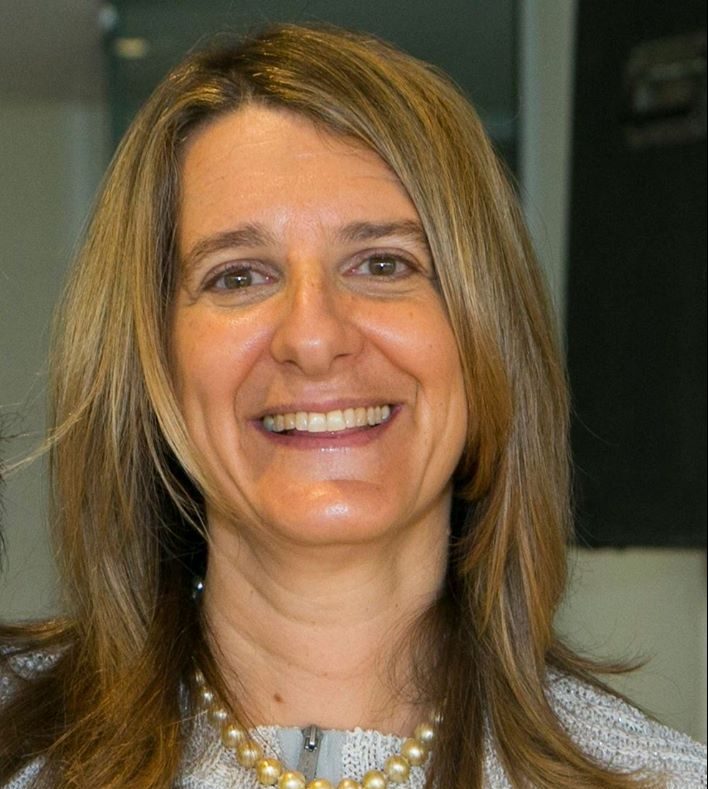“It is much easier to be Jewish in Israel than elsewhere. In the Diaspora, we have to make much more of an effort to educate ourselves and our children, to live an active Jewish life and to be part of the broader Jewish community.”
The Interviewee – Shira Sebban, writer and editor; long-time board member of Emanuel School, an egalitarian and pluralistic Jewish day school.
My mother was born in Tel Aviv in the then British Mandate of Palestine, my grandparents having left Poland as part of the fourth Aliyah. I was born in Montreal, Canada, but moved to Melbourne, Australia as a child, my grandfather having arrived there from Tel Aviv before World War II.
I also lived in Brisbane, before arriving in Sydney in the mid-1990s. I am a former journalist for the Australian Jewish News and am married with three teenage sons.
In your opinion, what importance, if any, does the existence of a Jewish state have to you personally and to Jewish people in general?
“It is very important, both as a refuge and as a spiritual and cultural home.”
Do you feel committed in some way to defend the future existence of Israel?
“Yes definitely.”
Do you affiliate yourself with a specific denomination in Judaism? What is your view regarding the dominance of the Orthodox denomination in Israel religious establishment?
“I affiliate with Masorti or Conservative Judaism. I understand how historically the Orthodox denomination came to dominance in the Israeli religious establishment, but believe that times are changing and that there is room for all Jewish denominations both in Israel and the Diaspora.“
Do you feel morally responsible for Israel’s actions (such as its management of the Israeli-Palestinian conflict)?
“Yes I do feel morally responsible – I believe that we are all responsible for one another, that is what a true community is.“
In your opinion, what is the main thing Israelis fail to understand about the reality of being Jewish outside of Israel?
“It is much easier to be Jewish in Israel than elsewhere. In the Diaspora, we have to make much more of an effort to educate ourselves and our children, to live an active Jewish life and to be part of the broader Jewish community.”
How would you describe Israel’s policy (formally and in practice) regarding its relationship with the Diaspora?
“Formally, Israel’s policy is to listen to, respect and take the Diaspora into account. In practice, however, the Diaspora is often pushed to one side, depending on the political reality on the ground in Israel – consider, for example, the mikva issue and also the way the agreement about upgrading and recognizing the egalitarian prayer space at the Kotel has stalled.“
In your opinion, does Israel have an obligation to defend and help Jewish communities in need?
“Yes, as I wrote above, I believe we are all responsible for one another, and although Israel does have a great deal of responsibility, historically, it has defended and helped Jewish communities in need, and I hope it will continue to do so.”
Have you ever been to Israel? if you have, can you summarize your impressions from Israel?
“I love going to Israel and have visited many times. It is a thriving, exciting and diverse society, which has made many technological advances. At the same time, it has many problems, some of which resemble those of other countries, such as dealing with economic and social issues, including looking after the poor and underprivileged.
“Other problems seem quite unique to Israel: for example, trying to achieve a balance between the Orthodox and non-Orthodox and unaffiliated; trying to lead a ‘normal’ daily existence, while remaining constantly alert to security threats.“
Can you tell us a bit about the Jewish community in your hometown?
“The Jewish community of my hometown, Sydney, Australia, has a population of about 50,000, mainly centred in the eastern suburbs and on the upper north shore. It is a diverse and active community, many of whom come from overseas — originally after World War II from Hungary, but also more recently, from the former Soviet Union, South Africa and Israel.
“Many communal organisations are organised under the umbrella of the Jewish Communal Appeal, which raises funds each year for all of them. While many members of the community are affiliated to one of the numerous Orthodox synagogues and identify as traditional Jews, there are also two Progressive synagogues, a Conservative (Masorti) minyan, and a large number of Jews who remain unaffiliated.”

